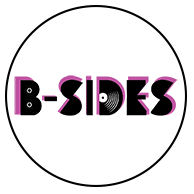 Whenever someone has asked you what kind of music you list to, have you ever answered “indie?”Probably not. It’s not that being indie is embarrassing, it’s just that the word is confusing and not very well defined. After all, what does that word mean? What is it? What isn’t it? Instead of making your tastes clear, the situation is more opaque once the ‘I’ word is dropped. We at B-Sides are going to try to disperse the fog around this concept, and attempt to find out why it is so dang popular.
Whenever someone has asked you what kind of music you list to, have you ever answered “indie?”Probably not. It’s not that being indie is embarrassing, it’s just that the word is confusing and not very well defined. After all, what does that word mean? What is it? What isn’t it? Instead of making your tastes clear, the situation is more opaque once the ‘I’ word is dropped. We at B-Sides are going to try to disperse the fog around this concept, and attempt to find out why it is so dang popular.
So what is it? Indie is easy to define in movies. An independent film is anything that is funded and produced without an investment from a major studio. But there are dozens, if not hundreds of singers, and bands signed to major labels some people would still consider to be indie. Manchester Orchestra is signed with Sony BMG, Iron and Wine is signed with Warner Bros., and The Decemberists are with Captiol Records. However no one can fairly accuse those acts of being excessively mainstream. In this same vain, there are unsigned music artists you’ve never heard of that are obviously not indie. Every teenager with a golden voice doing Justin Beiber covers on YouTube has placed themselves on the “decidedly not indie” side of this line in the sand. At first glance the definition of the word seems very involved on feeling. How do you feel about a band, indie or not? Katy Perry, is not. But, most people would say that Arcade Fire is. Why? If it’s not about their label then what makes them independent?
The answer to that is hard to determine. However, it is a bit easier to define what “indie” isn’t. If you were to google the billboard hot 100 right now, you would know that no one who made that list was indie. Sorry, Pharell, John Legend, and the soundtrack from Frozen but you guys don’t make the cut. Pop music is the opposite of indie. Even if an indie band becomes popular, they are not pop. Neither of these twains shall ever meet. The two are opposites. If the question is “what isn’t indie?” the answer is, “it’s not pop.”
The job of defining this complex term can best be conquered by looking at the fans. Who likes indie music? Who even listens to that stuff? Like we said before, indie fans pretty much never use that word. “Alternative,” “off-beat,” or “weird stuff you’ve never heard of” are the preferred phrases for the discerning fan. While “hipster” is a dirty word for most people who identify with this persona. Whatever the words are that a fan uses, what they’re really saying is that they think differently. These people are proud of the fact that they refuse to go with the grain. Because sometimes it’s hard work to be weird. The true marker of indie fans is that they are truly willing to work for their taste. Pop music is for someone who wants to flip on the radio and sing along. Indie is for someone who reads this blog to find out up and coming talents. That same person may carefully organize their vinyl collection, or ask friends their favorite bands hoping to find something they’ve never heard of.
Indie music is not for the feint of heart. It’s work, more than anything. Even if definition is nearly impossible we can say that indie is hard. After all, greatness doesn’t come easily. Finding a new favorite band takes a lot of work. We all know that sometimes you need to wade through a a lot of crap to get there. But, you remember the first time you heard that perfect sound. That song that stuck with you. Part of the pleasure came from knowing that it not some mass-produced mega hit. It was special. It was yours. This music is very personal to the people that love it Any fan can tell you that discovering a new band is a way of obtaining new knowledge. And, Knowledge is power.
